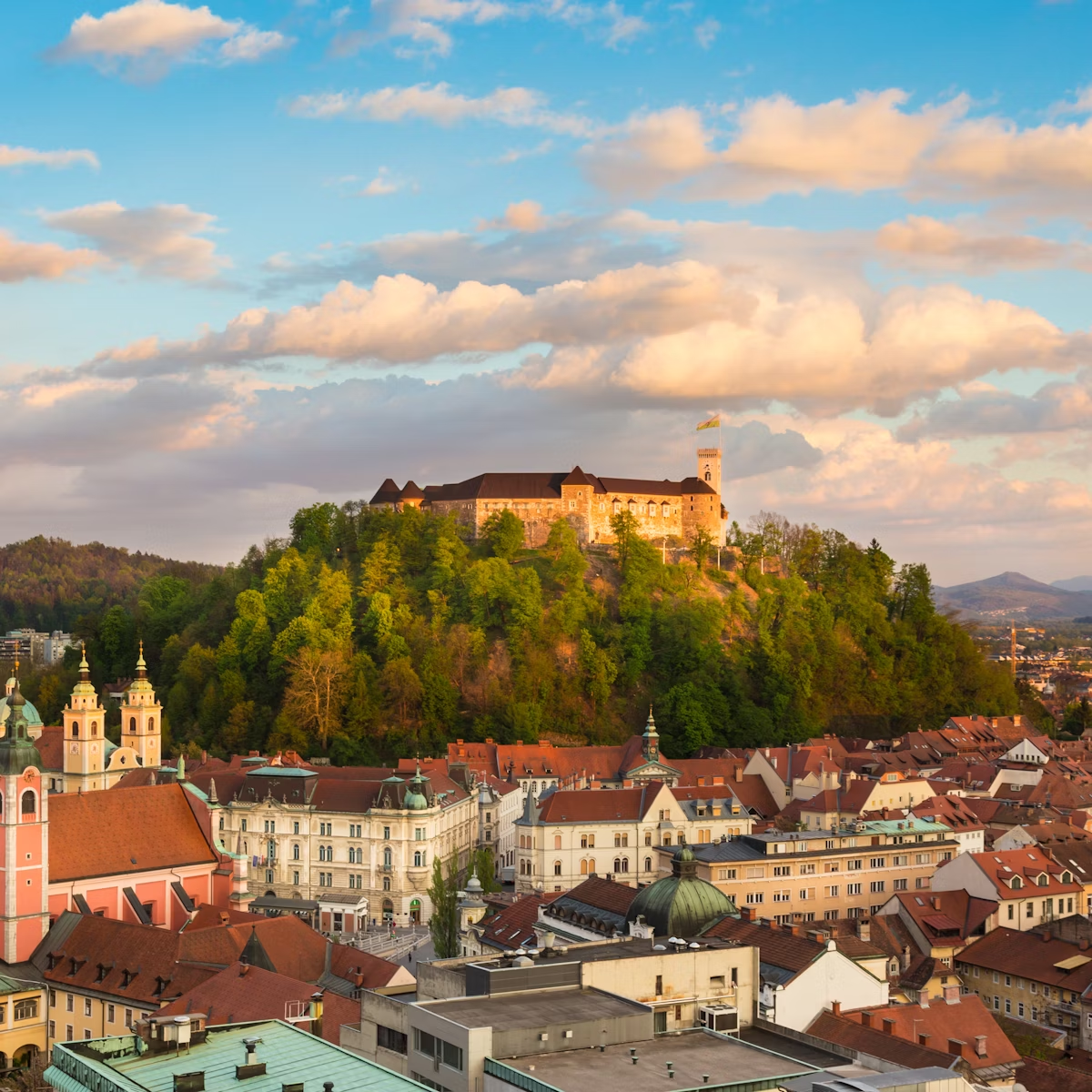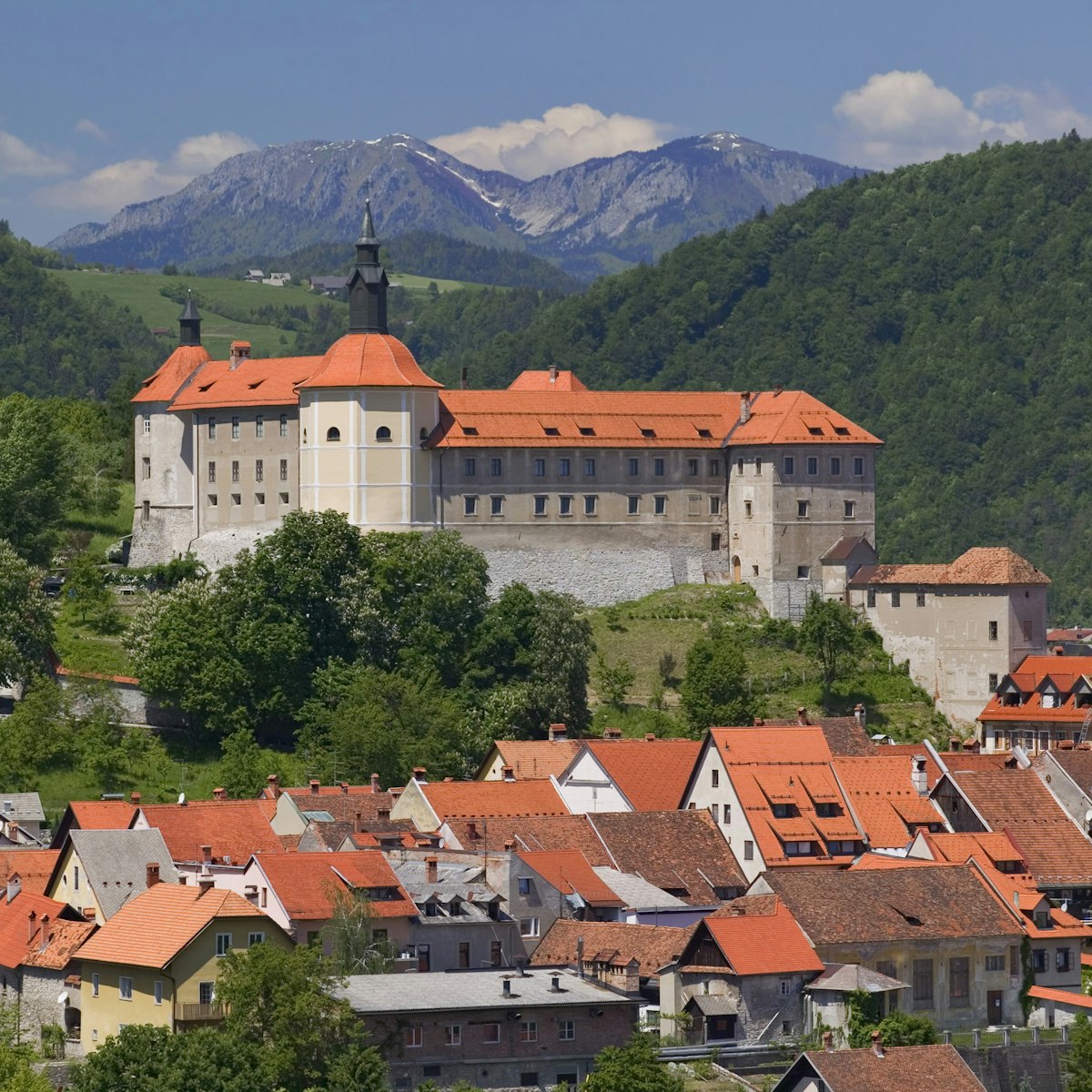The town's most important church dates back to the 13th century, with key features like the nave, the presbytery with star vaulting (1524) and the tall bell tower (1532) added over the next three centuries. The dozen or so distinctive ceiling lamps and the baptismal font were designed by Jože Plečnik.
Inside the church, look up to the vaulted ceiling to see bosses with portraits of the Freising bishops (the town's founders), saints, workers with shears and a blacksmith; the two crescent moons in the presbytery are reminders of the Turkish presence. Outside the church, on the south side, is the church's rectory, part of a fortified aristocratic manor house built in the late 16th century.







